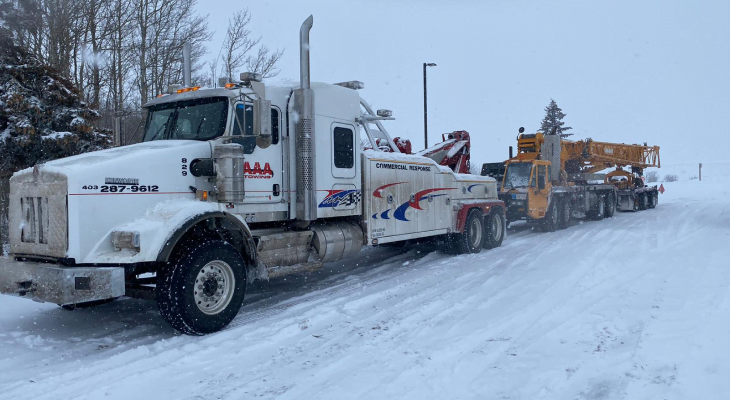
Heavy-duty towing and recovery operations entail a complex orchestration of machinery, expertise, and strategic planning. Yet, one factor that significantly influences the efficiency and safety of these operations often goes overlooked: weather conditions.
In this comprehensive blog post, we’ll delve into how weather can affect heavy-duty towing and recovery efforts, shedding light on how towing companies adapt and overcome these challenges to ensure seamless service delivery.
Understanding The Dynamics Of Heavy-Duty Towing
Before we delve into the nuances of weather-related challenges, let’s briefly recap the fundamentals of heavy-duty towing. Towing companies transport large vehicles and equipment, such as semi-trucks, buses, and construction machinery.
Heavy-duty towing requires specialized equipment, including robust tow trucks equipped with powerful winches and hydraulic systems capable of handling substantial loads.
The Impact Of Weather Conditions On Towing Operations
1. Rain And Flooding
Rainfall and flooding pose significant challenges for
To mitigate the impact of rain and flooding, towing companies employ various strategies. This may include utilizing specialized tow trucks with enhanced traction control systems and employing experienced operators skilled in navigating challenging road conditions. Furthermore, maintaining clear communication channels between towing operators and dispatch centers is crucial for effectively coordinating responses to weather-related emergencies.
2. Snow And Ice
In regions prone to snow and ice, towing companies face unique obstacles during winter. Slippery road conditions amplify the risk of accidents and make it challenging to tow heavy vehicles safely. Specialized equipment, such as snow chains and tire traction aids, are essential for maintaining traction and stability in icy conditions. Moreover, towing operators must exercise caution when navigating icy roads to prevent skidding or jackknifing.
To combat the challenges of snow and ice, towing companies prioritize proactive measures such as pre-treatment of roads with de-icing agents and regular inspections of towing equipment for signs of wear or damage. Additionally, implementing stringent safety protocols, including reduced towing speeds and increased following distances, helps mitigate the risk of accidents in icy conditions.
3. Extreme Heat
High temperatures can also impact heavy-duty towing operations, albeit in different ways. Prolonged exposure to extreme heat can strain towing equipment, leading to overheating and mechanical failures. Additionally, hot weather exacerbates tire wear, increasing the risk of blowouts during towing. Towing companies must implement preventive maintenance measures and monitor equipment closely to mitigate the effects of extreme heat.
To address the challenges associated with extreme heat, towing companies prioritize regular equipment inspections and maintenance checks to identify and address potential issues before they escalate. Furthermore, providing towing operators with adequate rest breaks and access to hydration helps mitigate the risk of heat-related fatigue and ensures optimal performance during towing operations.
4. Strong Winds
Strong winds pose a significant hazard during heavy-duty towing operations, particularly when transporting tall or wide loads. Wind gusts can destabilize towed vehicles, leading to swaying or tipping if proper precautions are not taken. Towing companies may need to adjust towing speeds, secure loads more robustly, or postpone operations during powerful winds to ensure safety.
To mitigate the risks associated with strong winds, towing companies employ advanced weather monitoring systems to track wind speeds and anticipate potential hazards. Additionally, implementing stringent load-securing protocols and providing towing operators with specialized training on wind-resistant towing techniques enhances safety and minimizes the risk of accidents.
Adapting To Weather Challenges
Towing companies employ various strategies to mitigate the impact of adverse weather conditions on heavy-duty towing operations. These may include:
- Conducting thorough risk assessments before commencing towing operations.
- Utilizing specialized equipment and accessories tailored to specific weather conditions.
- Providing ongoing training to towing operators on safe towing practices in diverse weather scenarios.
- Maintaining a proactive approach to equipment maintenance and inspection to prevent weather-related failures.
- Implementing contingency plans and communication protocols to respond effectively to weather-related emergencies.
About AAA Towing
AAA Towing is a reputable towing company dedicated to providing reliable heavy-duty towing and recovery services. With a team of experienced professionals and a fleet of state-of-the-art tow trucks, we specialize in handling challenging towing scenarios, including inclement weather conditions. Our commitment to safety, efficiency, and customer satisfaction sets us apart as a trusted partner for all your towing needs. Contact us today for more information.
Fast & Reliable Towing
We make sure each customer is completely satisfied before we leave the job.